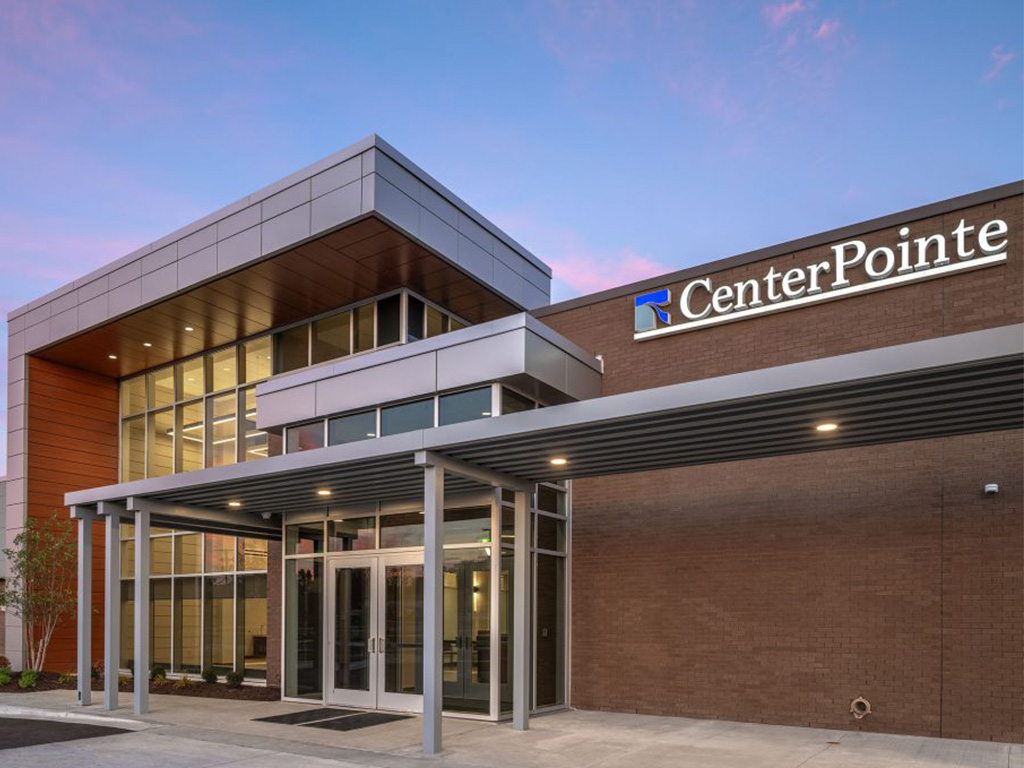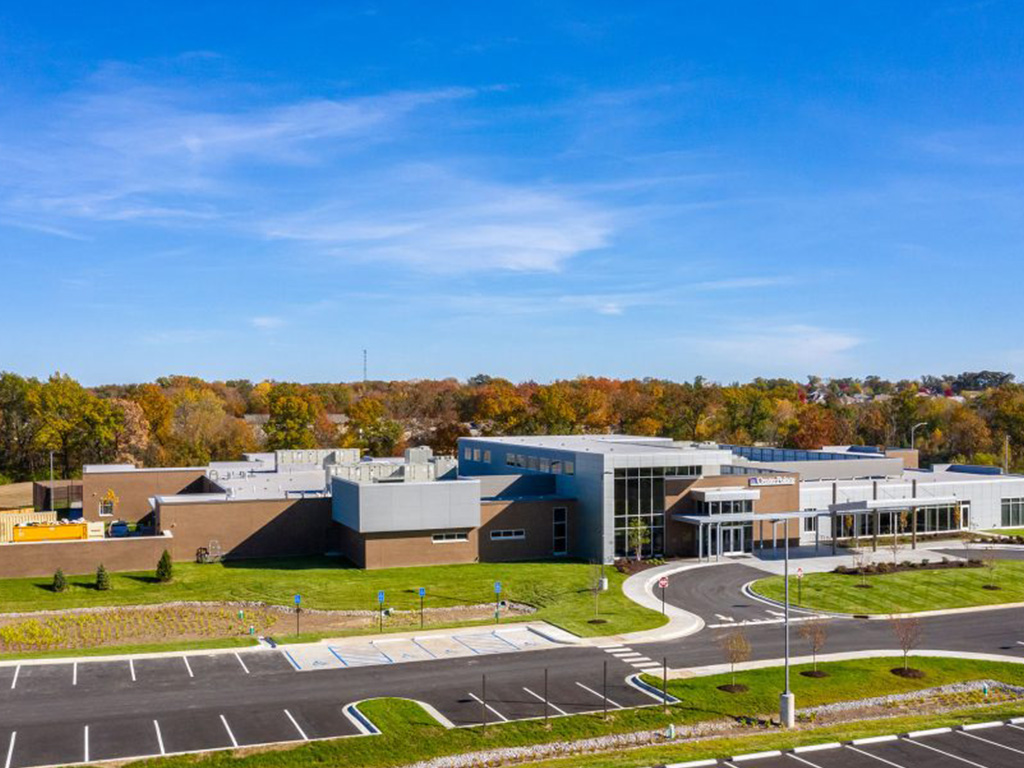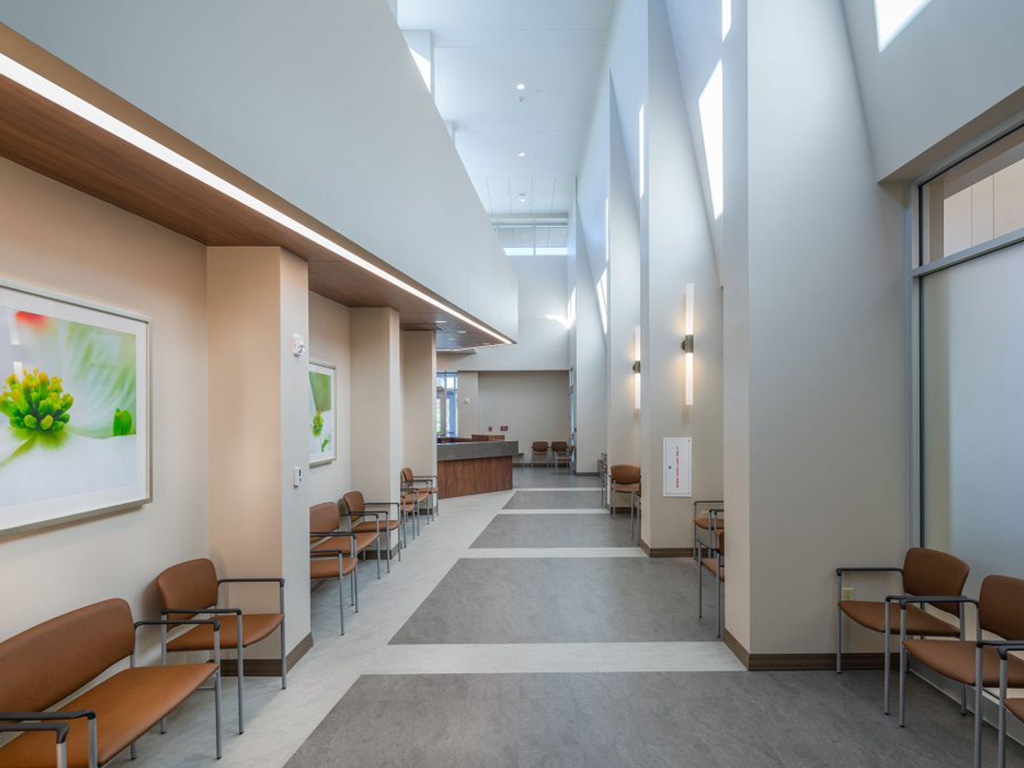Addiction is a potentially devastating disorder. It is also a treatable condition. When people receive appropriate care at a quality addiction treatment center, they can learn how to manage their symptoms, control their behaviors, and live healthier and more hopeful lives.
CenterPointe Hospital of Columbia provides multiple levels of personalized care for adults who have developed addictions to alcohol and other drugs. Our addiction treatment center is a safe and supportive place where adults can end their substance abuse and establish a foundation for long-term recovery.
Learn About Treatment for Addiction
Effective addiction treatment centers employ an array of therapies and support services that are customized to meet the specific needs of each patient. Many reputable centers also offer addiction treatment at multiple levels of care.
Learning about the features and benefits of the various levels of care can be extremely valuable when you are trying to determine which addiction treatment center is best for you.
At CenterPointe Hospital of Columbia, our continuum of care includes the following options:
- Detoxification: We offer on-site medical detoxification services for adults who are receiving inpatient addiction treatment at our hospital. If the pain of withdrawal has kept you trapped in the downward spiral of active addiction, detox can be an essential step on the path to long-term recovery. Detox typically takes seven to 10 days.
- Inpatient treatment: We provide age-appropriate inpatient addiction treatment services for adults and older adults. Features of inpatient addiction treatment include structured daily schedules, multiple forms of therapy, nutritious meals, comfortable rooms, and round-the-clock supervision. Typical length of stay in inpatient treatment is seven to 10 days for adults and 10-14 days for older adults.
- Intensive outpatient program (IOP): Our IOP offers three hours of addiction treatment services per day, three days per week. Group therapy is the main means of treatment at the IOP level, with medication management and family therapy available on an as-needed basis. Some patients enter treatment directly at the IOP level, while others step down to our IOP after completing inpatient treatment for addiction. Typical length of stay in our IOP is four to six weeks.
- Traditional outpatient services: Traditional outpatient treatment for addiction at our hospital includes individual sessions with either a psychiatrist or a nurse practitioner. This level of care offers considerable flexibility, as sessions can be scheduled at the frequency that is best for each patient. Our traditional outpatient services can be a valuable source of ongoing support as you work to maintain your health and strengthen your recovery.
Therapies Used to Treat Addiction
Depending on a host of individual factors, including which level of care you are in and if you have any co-occurring mental health concerns, your personalized addiction treatment plan at CenterPointe Hospital of Columbia may include elements such as the following:
- Cognitive behavioral therapy (CBT)
- Dialectical behavior therapy (DBT)
- Acceptance and commitment therapy (ACT)
- Motivational interviewing
- 12-Step education and support
- Group therapy
- Experiential therapy
- Family therapy
- Individual therapy
- Basic medical care
- Medication management services
- Transcranial magnetic stimulation (TMS)
Please note that the therapies and services listed above may not be available at all levels or provided for every person who receives addiction treatment at our hospital. The members of your treatment team will assess your needs and select the elements of care that are most appropriate for you.
The Benefits of Addiction Treatment
The specific benefits you receive during your time at our addiction treatment center will depend on your needs, goals, and progress. In general, though, all patients can benefit from the following features of addiction treatment:
- Drug-free environment: Don’t discount the benefit of being in a place where you won’t have access to addictive substances. In addition to removing this temptation, residential treatment for addiction allows you to momentarily step away from the stresses and pressures that could threaten to undermine your recovery.
- Therapy: Therapy sessions can help you identify and address the concerns that may have led you to struggle with substance abuse or prevented you from seeking help sooner. These sessions can also be supportive forums where you can process your experiences; discuss your goals, hopes, and fears; and receive focused guidance from an experienced professional.
- Education: While you are in treatment, you can gain valuable information about the disease of addiction and the process of recovery. You can also learn and practice skills for managing stress, resolving conflicts, and dealing with other challenging situations in a healthy manner without resorting to substance abuse.
- Connection: Addiction can isolate you from friends, family members, and other vital sources of support. Effective addiction treatment can help you overcome this isolation and begin to repair your relationships. During treatment, you can also discover the many benefits of sharing support with others who are also working to achieve long-term recovery from addiction.
How to Help a Loved One Who Needs Addiction Treatment
When someone you care about is struggling with a substance use disorder, it’s common to feel frustrated, helpless, and even angry. But don’t give up hope. You can play an important role in the effort to connect your loved one with the addiction treatment services they need.
- Educate yourself: Learn about addiction, treatment, and recovery. Research addiction treatment programs in your area and identify facilities that appear to have the services your loved one needs. The more you educate yourself on topics like these, the better prepared you will be to provide your loved one with meaningful support.
- Talk to your loved one: Don’t be afraid to express your concerns to your friend or family member about their health and behavior, but be sure to also emphasize that you care about them and want to help. Depending on how the conversation goes, you may want to share the information you have gathered about addiction treatment. It’s unlikely that one conversation will prompt your loved one to enter an addiction treatment program. Be prepared to revisit the topic.
- Listen to your loved one: When you talk to your loved one, be sure that you are having a conversation, not delivering a lecture. That means that they should have ample opportunities to reply to what you are saying. Their response can give you great insights into what they’re going through and how open or resistant they are to the idea of getting help. Don’t ignore the likelihood that they may respond with denial, anger, or hostility. Do all you can to prevent the discussion from descending into an argument.
- Get help: Don’t try to take this on all by yourself. If possible, recruit a small group of close friends and trusted family members to help you. You may also want to make an appointment with a therapist or counselor. You need to address how you have been impacted by your loved one’s struggles with an addiction. If you ignore your own needs, your ability to support your friend or family member will suffer.
Why Choose Our Addiction Treatment Center?
If you need professional care for a substance use disorder, here are a few reasons why our addiction treatment center may be the ideal place for you:
- Safety and support: An untreated addiction poses a perpetual threat to your health. When you enter addiction treatment at our hospital, you minimize your risk for continued harm. Here, you will be cared for by a team that is dedicated to providing patient safety and compassionate support.
- Personalized treatment: At CenterPointe Hospital of Columbia, there is no such thing as “one size fits all” addiction treatment. Our team will develop a customized plan that can address your specific needs and empower you to achieve your short- and long-term goals.
- Comprehensive care: Effective addiction treatment should reflect the fact that a substance use disorder can impact all parts of a person’s life. Our continuum of care and broad range of services ensure that we can meet the full scope of your needs, which includes addressing any co-occurring mental health disorders.
- Clinical excellence: When we develop your personalized addiction treatment plan, we will select from an array of evidence-based, research-supported therapies and services. In all we do, we are committed to upholding the highest standards of clinical quality and patient care.
- Discharge planning: The moment you enter our addiction treatment center, we will begin preparing for the day you transition out of our care. Before you leave, we will provide you with a detailed discharge plan to guide your continued progress. Recovery is a lifelong journey, and we want to be sure that you are connected with valuable sources of ongoing support.
This content was written on behalf of and reviewed by the clinical staff at CenterPointe Hospital of Columbia.














